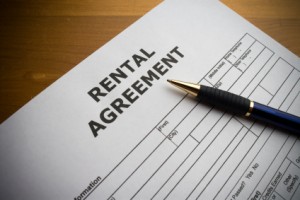Posted by Teresa on September 25, 2010 under Housing Trends | 
 A new survey by Fannie Mae reveals that the goal of home ownership is losing its appeal for Americans. Falling home prices, foreclosure and financial ruin is enough to make the strongest homeownership desire fade, as evidenced by the falling number of people who say they consider housing a safe investment.
A new survey by Fannie Mae reveals that the goal of home ownership is losing its appeal for Americans. Falling home prices, foreclosure and financial ruin is enough to make the strongest homeownership desire fade, as evidenced by the falling number of people who say they consider housing a safe investment.
The percentage of Americans who though of housing as a safe investment was 83% in 2003. But by July of this year, it has fallen to 67%. That’s three points lower than January 2010. And, while more Americans (70% in July vs. 64% in January) believe home prices are nearing the bottom and it’s a good time to buy, the number of households saying they’re more likely to rent than buy rose from 30% in January to 33% in July.
Why Americans are Renting
If home prices are falling and mortgage rates are near 50-year lows, why wouldn’t more people be lining up to buy homes, rather than rent them? First, tighter lending standards. People simply can’t qualify for mortgages like they could in the free-flowing days of the early 2000s. Second, the still-stagnant labor market is keeping people from taking on more debt; those with jobs are paying off debt and tightening up on spending. Third, even if they did qualify for a mortgage, people think they cannot. In fact, more than 50% of renters believe they cannot obtain a mortgage to purchase a home.
Younger people are taking a wait-and-see approach, according to a Wall Street Journal article on the rental market. Where once they might have purchased a condo, they are renting for the long-term foreseeable future. They’ve seen friends become “stuck” owning homes they cannot sell, unable to move and take advantage of job opportunities. And, they see homeownership as an “economic trap.”
Economic analysts say these changing attitudes could lay a “more stable foundation for the housing market,” as Americans see homes as a durable good, like a car, and not an investment. And it’s good news for landlords, who could be enjoying lower vacancy rates in the future!
Posted by Teresa on September 21, 2010 under Landlord Tips, Tenant Screening & Background Checks | 
 Sizing up tenants is a tricky business. Legally, a landlord cannot discriminate against potential tenants based on gender, age, race, family status, religion, disability or country of origin. And experienced landlords know that you can never judge a book by its cover. That flashy car and expensive jewelry doesn’t guarantee a tenant that will pay the rent on time. Conversely, a beater car and sloppy appearance might not be ideal, but if they can pay the rent, should we care about a wrinkled shirt?
Sizing up tenants is a tricky business. Legally, a landlord cannot discriminate against potential tenants based on gender, age, race, family status, religion, disability or country of origin. And experienced landlords know that you can never judge a book by its cover. That flashy car and expensive jewelry doesn’t guarantee a tenant that will pay the rent on time. Conversely, a beater car and sloppy appearance might not be ideal, but if they can pay the rent, should we care about a wrinkled shirt?
While keeping an open mind during the tenant application process is a good idea, you still want to start the screening process with your very first contact.
Here are 4 warning signs that a potential tenant could cause you problems:
- Your potential tenant cannot pay the security deposit. If they want to pay in installments, or as soon as they get paid next week, or when they get their security deposit back on their current place, you might need to get used to hearing such excuses.
- They are a little too “salesy.” Excitement over finding a great apartment or rental house is great—you want your tenants to like your rental property. But major flattery of you, your outfit, your hairdo or the property should be a red flag. So is selling him or herself too hard. You could have a con artist on your hands!
- A potential tenant starts asking about trading services for rent. There are plenty of landlords who allow tenants to repair and maintain their building or cut the grass in exchange for rent. But it can lead to problems. If you’re not yet at the lease stage and you’re hearing offers of bartering for rent, consider yourself lucky and move on.
- The lease application is not filled out completely. Conveniently forgetting the phone numbers of a current landlord, boss, or personal references is a bad sign. Leaving blanks indicates that your potential tenant might not want you to have that information.
Follow up your gut-check on every tenant with a thorough background and credit screening. If all comes back clean, check with references and employers to give yourself a complete picture of your tenant—before the lease is signed!
 A new survey by Fannie Mae reveals that the goal of home ownership is losing its appeal for Americans. Falling home prices, foreclosure and financial ruin is enough to make the strongest homeownership desire fade, as evidenced by the falling number of people who say they consider housing a safe investment.
A new survey by Fannie Mae reveals that the goal of home ownership is losing its appeal for Americans. Falling home prices, foreclosure and financial ruin is enough to make the strongest homeownership desire fade, as evidenced by the falling number of people who say they consider housing a safe investment. 
